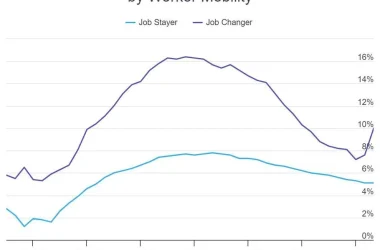By RYAN QUINN
Charleston Gazette-Mail
CHARLESTON, W.Va. — West Virginia lawmakers heard Tuesday about general proposals to allow voters to elect state Board of Education members and allow lawmakers themselves to reject and amend policies that the state school board passes.
The hour-and-a-half legislative interim meeting came after the House Education Committee passed House Joint Resolution 24 during this year’s regular legislative session.
It would’ve put before voters a constitutional amendment that, if voters approved it, would’ve made six of the board’s nine voting members elected officials. They’re currently all gubernatorial appointees.
The amendment also would’ve let the Legislature reject the policies the board passes — a power lawmakers have over rules passed by other state agencies, including the higher education agencies.
Delegate Roy Cooper, R-Summers, sponsored the resolution, which had House Speaker Tim Armstead, R-Kanawha, and House Education Chairman Paul Espinosa, R-Jefferson, among its eight co-sponsors, also all Republicans.
But the House Judiciary Committee transformed the joint resolution into a mere resolution requiring a study.
To even get before voters, such a resolution would need to be approved by two-thirds majorities in both the full House and Senate.
The state board and lawmakers have butted heads in recent years over Common Core education standards and standardized tests. One of the presenters Tuesday from the National Conference of State Legislatures discussed the issue of legislative power over state board decisions in the context of the backlash against Common Core.
The Nicholas County Board of Education’s school consolidation proposal was an issue during this year’s regular legislative session, and Espinosa tweeted criticism of the state board’s denial of the Nicholas board’s plan.
Nicholas board President Gus Penix attended Tuesday’s meeting alongside Nicholas public schools Superintendent Donna Burge-Tetrick and another Nicholas school system official. Penix, dressed in a suit, said he was in Charleston “on personal matters,” and the other two didn’t say why they were there.
Espinosa said disagreements between him and the state board were “absolutely not” part of the reason he supported electing state board members during the regular session.
“My primary interest in that portion of the resolution was based on feedback I’ve received from constituents and, just talking with legislative colleagues, there seems to be a fair amount of support for making our state board members more accountable,” he said.
He also noted that the state board doesn’t have a member from the Eastern Panhandle, part of which he represents and which he noted has among the state’s largest public school systems. He said the idea of electing board members from designated districts around the state appealed to him.
As for granting the Legislature the ability to amend or reject the state board’s policies, Espinosa said he was surprised to learn, when he was appointed to the Legislative Oversight Commission on Education Accountability in 2015, that lawmakers didn’t already have that power.
“For me that certainly brought home the whole notion, should we have some ability to review rules promulgated by the state board and the Department [of Education] to ensure they’re consistent with legislation we enact?” Espinosa said.
“I’m opposed to both proposals because I think it’d do nothing but politicize the educational system more than it already is, and it certainly will cause big money to be deeply involved in the education process if we go to elected state board members,” said state board Vice President Dave Perry, who attended the meeting alongside fellow state board members Miller Hall and Debra Sullivan.
None of the state board members nor anyone from the education department, which they oversee, were on Tuesday’s agenda to speak. Espinosa said the meeting was largely about learning how other states deal with these issues.
Perry said he served on House Education for 16 years, including as its vice chairman for four years when Democrats were in the majority and as its minority leader for two years under Republican control. The current president of the state board, Tom Campbell, is a former House Education chairman.
Perry said he himself helped pass “very pragmatic” laws, and said during his tenure he “rolled back” the Legislature’s interference in public education.
“We’ve had 60 years of this model, and this model has worked for 60 years,” he said of current governor-appointed state board model.
Due largely to resignations and the fact that former Gov. Earl Ray Tomblin didn’t fill all the board’s existing vacancies before he left office, Gov. Jim Justice was able to appoint six of the state board’s voting members since taking office in January. The Senate, which is also controlled by Republicans, confirmed all of his appointments.
According to the state Constitution, governors appoint the board members, “with the advice and consent of the senate,” to nine-year terms, although they can be reappointed to successive terms and can continue serving after their terms expire, until a governor appoints a replacement. Testimony Tuesday indicated West Virginia’s state board terms are the longest in the U.S., though one delegate indicated the state is tied with Mississippi.
Governors’ terms are only four years, and they can only be elected to one successive four-year term, so board members appointed by one governor can continue serving into the term of successive governors before they are allowed to be replaced.
The Constitution says the governor can’t remove board members “except for official misconduct, incompetence, neglect of duty, or gross immorality.”
Though Justice switched from being a Democrat to a Republican since this year’s regular legislative session ended, his actions haven’t been fully embraced by the state Republican Party.
The Governor’s Office didn’t respond to a request for comment Tuesday on Justice’s position on the proposals. Espinosa said he didn’t know how much of a priority the proposals would be in the upcoming session, saying Tuesday’s meeting was to educate lawmakers and that he still needed to see what the other lawmakers think.
See more from the Charleston Gazette-Mail




